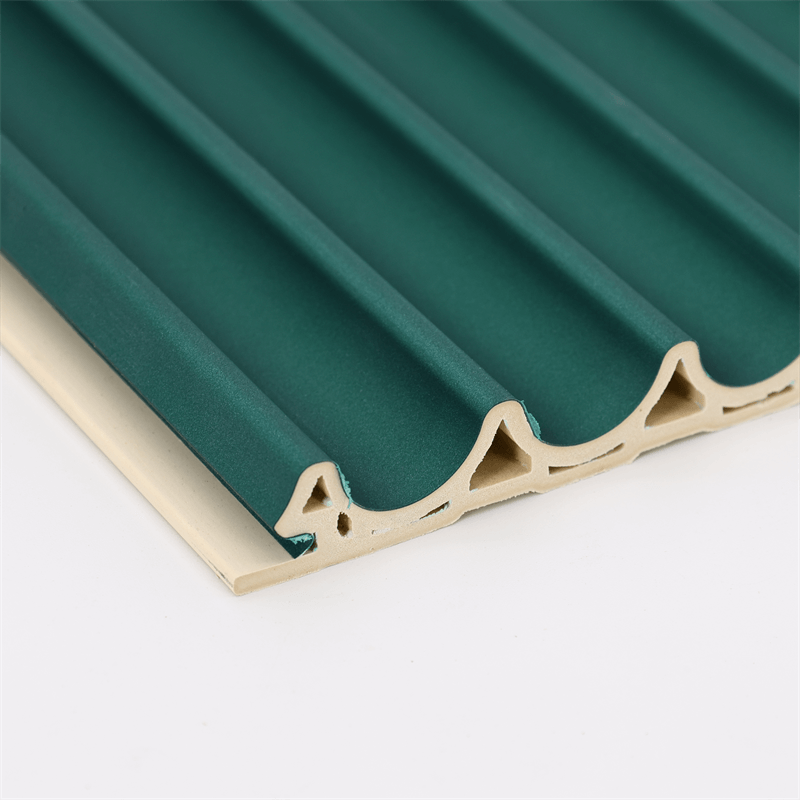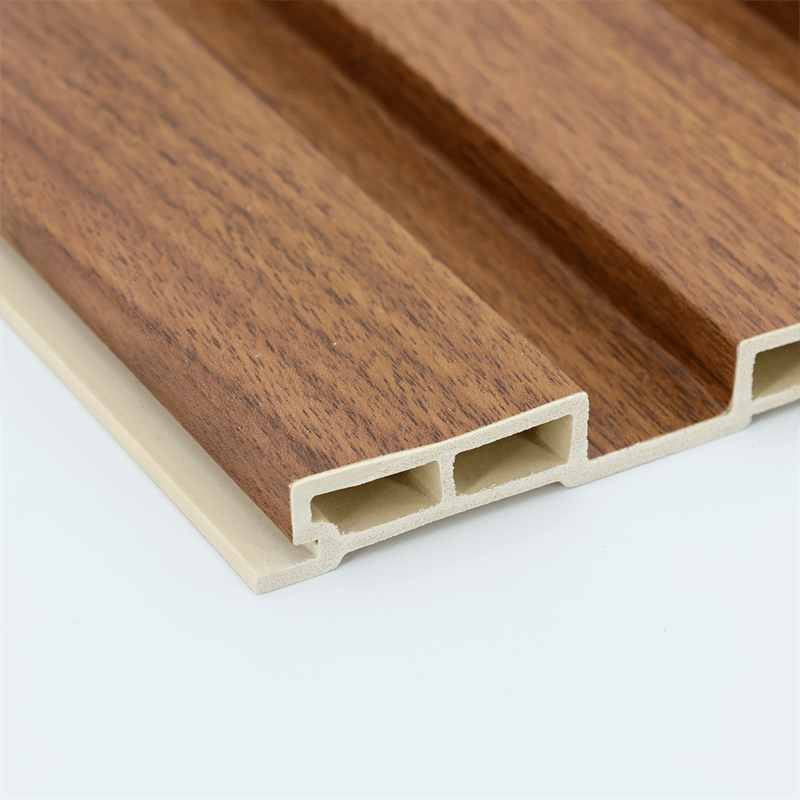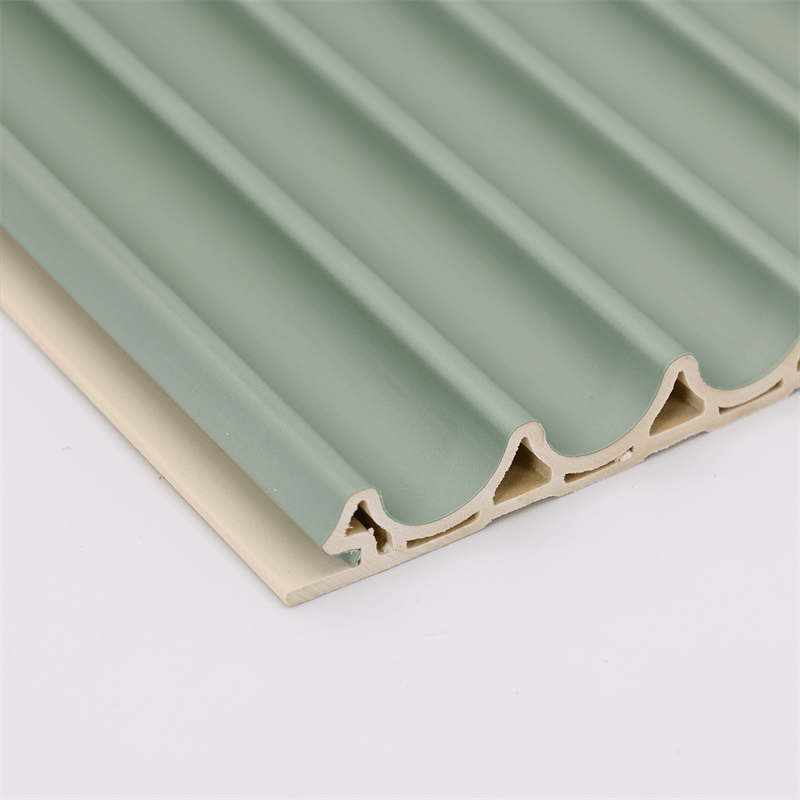Residential construction requires careful consideration of materials that offer durability, aesthetics, and sustainability.
Wood-Plastic Composite (WPC) wall panels have gained popularity as a viable option for residential projects due to their numerous advantages.
This essay explores the benefits of using WPC wall panels in residential construction, focusing on their durability, eco-friendliness, cost-effectiveness, and design versatility.
I. Durability: Long-lasting and Low Maintenance
- Resistance to Rot and Decay: One of the key advantages of WPC wall panels is their resistance to rot and decay. Unlike traditional wood materials, WPC panels are composed of a blend of wood fibers and plastic polymers, making them highly resistant to moisture, fungal growth, and insect infestation. This durability ensures that the panels maintain their structural integrity over time, reducing the need for frequent repairs or replacements.
- Dimensional Stability: WPC panels exhibit excellent dimensional stability, meaning they are less prone to expansion and contraction due to temperature and humidity changes. This characteristic is crucial in residential construction, as it minimizes the risk of warping, cracking, or buckling of the wall panels. The dimensional stability of WPC panels ensures a long-lasting and visually appealing finish for residential spaces.
II. Eco-Friendliness: Sustainable and Recyclable
- Use of Recycled Materials: WPC wall panels are an environmentally friendly choice as they incorporate recycled materials, such as wood fibers and plastic polymers derived from post-consumer waste. By utilizing these recycled materials, WPC panels reduce the demand for virgin resources and contribute to the overall reduction of waste in landfills. This eco-conscious approach aligns with sustainable building practices and promotes a greener residential construction industry.
- Reduced Environmental Impact: The production of WPC wall panels consumes less energy and generates fewer greenhouse gas emissions compared to traditional materials like concrete or steel. Additionally, the use of recycled materials in WPC panels reduces the extraction of natural resources, preserving forests and minimizing the environmental impact associated with traditional wood products. Opting for WPC panels in residential construction promotes sustainability and helps mitigate the carbon footprint of the building industry.
III. Cost-Effectiveness: Long-Term Savings
- Low Maintenance Requirements: WPC wall panels are relatively low maintenance compared to other materials. Their resistance to rot, decay, and pests eliminates the need for regular treatments, such as staining or sealing, as required for traditional wood cladding. The easy-to-clean surface of WPC panels also reduces the time and cost associated with maintenance, allowing homeowners to save on long-term upkeep expenses.
- Durability and Longevity: The durability of WPC wall panels translates into long-term cost savings. Their resistance to weathering, moisture, and impact ensures that the panels retain their original appearance and structural integrity for extended periods. With a longer lifespan compared to traditional materials, homeowners can avoid frequent repairs or replacements, reducing maintenance and replacement costs over time.
IV. Design Versatility: Aesthetically Pleasing Residential Spaces
- Wide Range of Colors and Finishes: WPC wall panels offer a wide variety of colors, textures, and finishes, allowing homeowners to customize their residential spaces according to their desired aesthetic. Whether replicating the appearance of natural wood or embracing contemporary designs, WPC panels provide ample design options to suit various architectural styles and personal preferences.
- Ease of Installation: WPC wall panels are designed for easy and efficient installation. They can be installed using a variety of techniques, including direct fastening or interlocking systems, which simplifies the construction process and reduces installation time. The ease of installation not only saves labor costs but also minimizes the disruption to homeowners during the construction phase.
WPC wall panels offer numerous advantages for residential construction projects.
Their durability, eco-friendliness, cost-effectiveness, and design versatility make them a compelling choice for homeowners and builders alike.
By opting for WPC panels, residential spaces can enjoy long-lasting, low-maintenance finishes that contribute to sustainability efforts and provide aesthetic appeal.
Incorporating WPC wall panels in residential construction ensures a harmonious blend of durability, style, and environmental responsibility, resulting in homes that are both visually pleasing and sustainable.

In conclusion, WPC wall panels are an excellent choice for residential construction due to their many advantages.
The durability of these panels, with their resistance to rot, decay, and dimensional instability, ensures a long-lasting and visually appealing finish for residential spaces.
Furthermore, their eco-friendliness, with the use of recycled materials and reduced environmental impact, aligns with sustainable building practices and contributes to a greener future.
The cost-effectiveness of WPC panels, with their low maintenance requirements and long-term savings, makes them a practical choice for homeowners looking to minimize upkeep expenses.
Lastly, the design versatility of WPC panels allows for customizable options, providing homeowners with the freedom to create aesthetically pleasing residential spaces that suit their personal style.
By incorporating WPC wall panels in residential construction, homeowners can enjoy the benefits of a durable, sustainable, cost-effective, and visually appealing solution.
The use of WPC panels not only enhances the longevity and aesthetic appeal of residential spaces but also contributes to a greener environment.
With their numerous advantages, WPC wall panels have become a popular choice for those seeking to build or renovate homes with an emphasis on durability, sustainability, and design flexibility.
By embracing the advantages of WPC wall panels, homeowners can create residential spaces that are not only visually stunning but also built to last.


